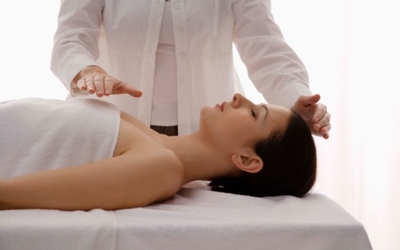Ancient Wisdom: Hands-On Manipulation Stands Test of Time
If you want the ancient wisdom of complementary wellness, you probably won’t find a more ancient healing tradition than hands-on manipulation. According to records, this healing technique was used three thousand years ago in China, but hands-on manipulation has been enhancing mankind’s wellbeing for much longer than that. Indeed, touch and laying hands on people seems to be part of our genes; an intrinsic part of wellness. William Collinge MPH, PhD, author of American Holistic Health Association Complete Guide to Alternative Medicine, points out, ‘While there are a wide variety of forms of massage therapy and bodywork, all with their own theoretical or philosophical perspectives, there are certain basic principles they all tend to; hold in common.’ So, what are the key principles of hands-on manipulation?
1. Blood circulation: This is perhaps the most basic principle in this field. ‘Improved blood circulation is beneficial for virtually all health conditions,’ says Collinge. ‘Tension in the muscles and other soft tissues can impair circulation, resulting in a deficient supply of nutrients and inadequate removal of wastes or toxins from the tissues of the body. This in turn can lead to illness, structural and functional problems, or slower healing.’
2. Movement of lymphatic fluid: Collinge explains, ‘The lymph system is almost as extensive as that of the blood. The circulation of lymphatic fluid plays a key role in ridding the body of wastes, toxins, and pathogens. The lymph system also benefits from massage, particularly in conditions where lymphatic flow is impaired by injury or surgery (e.g., in postmastectomy women).’
3. Toxin release: A build-up of toxins can occur in your body due to chronic tension or trauma to your soft tissues. However, through hands-on manipulation, a practitioner can help to move the toxins through your body’s normal pathways of release and elimination.
4. Tension release: ‘Chronic muscular tension as a result of high stress lifestyles, trauma, or injury can accumulate and impair the body’s structure and function,’ Collinge notes, adding that this also affects your psychological wellbeing. Therefore, by releasing this tension and enabling greater relaxation, hands-on manipulation can have important physiological and psychological benefits.
5. Interdependence of structure and function: According to Collinge, ‘The musculoskeletal structure of the body affects function and function affects structure. Both can be adversely altered by stress or trauma. Massage therapy and bodywork can help restore healthy structure and function, thereby allowing better circulation, greater ease of movement, wider range of movement, more flexibility, and the release of chronic patterns of tension.’
6. Enhancement of every bodily system: This principle goes hand-in-hand with some of the previous principles; better circulation and more harmonious functioning of your soft tissue and musculature. When these things are in place, Collinge asserts that ‘internal organ systems as well as the nervous system, the immune system, and other systems can benefit. There can be an overall improvement in the quality of life and physical health.’
7. Mind/Body Integration: Just as structure and function are intrinsically connected, there is also a reciprocal relationship between your mind and your body. ‘Soma (body) affects psyche (mind) and vice versa,’ Collinge notes. ‘Hence there can be somatopsychic effects, in which the conditions of the body affect the mind and emotions, and there can be psychosomatic effects, in which psychological or emotional conditions affect the body. Change in one domain may cause change in the other.’ Joanna Chieppa, RMT., a faculty member at Heartwood Institute and an energy healing practitioner, adds, ‘It is important for people to develop an awareness that the flow of energy in and around the body is just as important to wellbeing as the flow of blood, the flow of breath, the flow of cerebral spinal fluid— that it is essential for the health of body, mind, and spirit.’

Comments are closed.